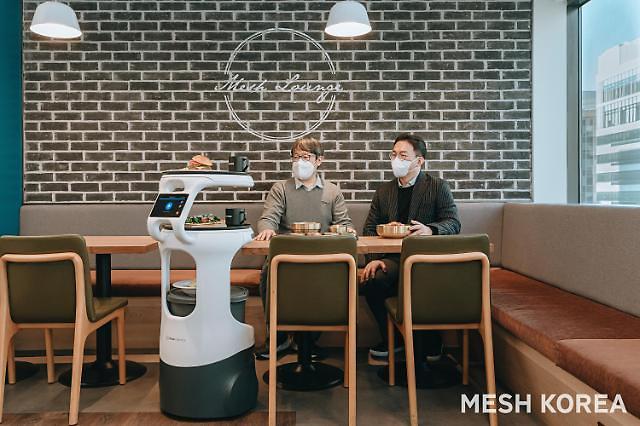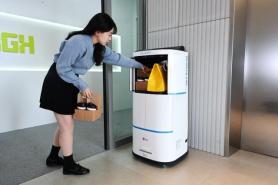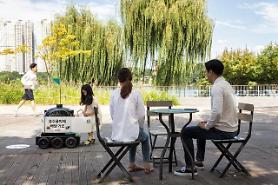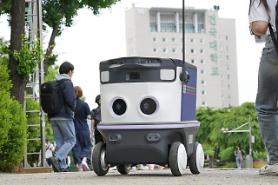
[Courtesy of Mesh Korea]
The last-mile delivery service is the last step of the delivery process. Using autonomous service robots instead of human delivery workers, companies can reduce the time taken for the final leg of delivery. For delivery workers, skyscrapers require much longer time than low-rise buildings. Mesh Korea provides a business-to-business (B2B) logistics service.
Mesh Korea said in a statement on February 9 that Bear Robotics' autonomous robots would be demonstrated in high-rise buildings and large apartment complexes. Mesh Korea's chief technology officer Kim Myung-hwan said the company would set its first step into the business-to-consumer (B2C) sector through collaboration with Bear Robotics.
VROONG provides food delivery services for restaurants. Due to the COVID-19 pandemic, South Korea's food delivery market has seen rapid growth. Transactions estimated at 17.3 trillion ($14.5 billion) were made online in 2020, up 78.6 percent from 9.7 trillion won a year ago. In 2017, Bear Robotics developed a food service robot called "Servi" that serves restaurant customers using a light detection and ranging (LiDAR) sensor.
Other companies have adopted autonomous delivery robots. In December 2021, Woowa Brothers, the operator of South Korea's top delivery service app Baedal Minjok, started the world's first door-to-door food delivery service using a six-wheeled food delivery robot in an apartment complex in Suwon south of Seoul. The robot can gain access to entrance doors by communicating with the home internet of things (IoT) system. Each delivery run took only an average of about 20 minutes.
Woowa Brothers is also operating "Dilly Tower," an autonomous service robot, to deliver drinks and snacks inside an office building in central Seoul.
Copyright ⓒ Aju Press All rights reserved.




